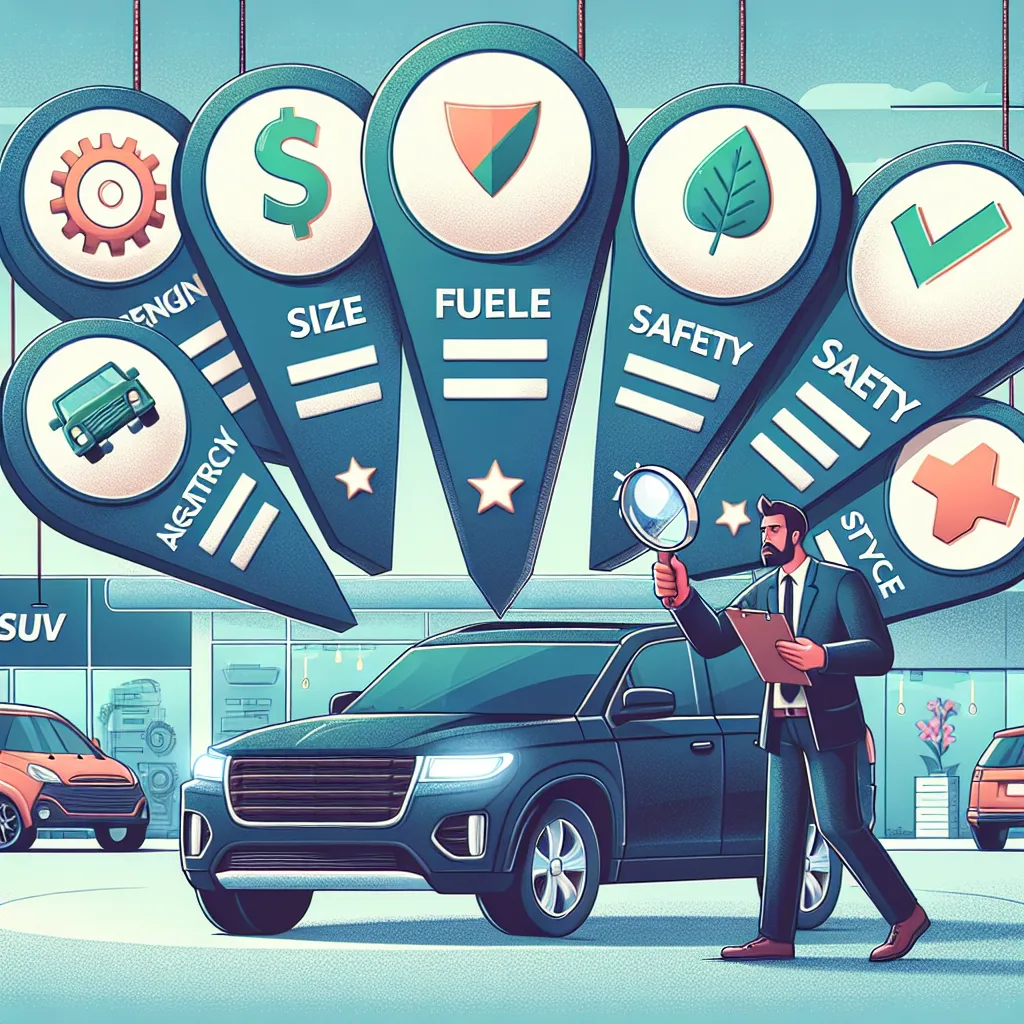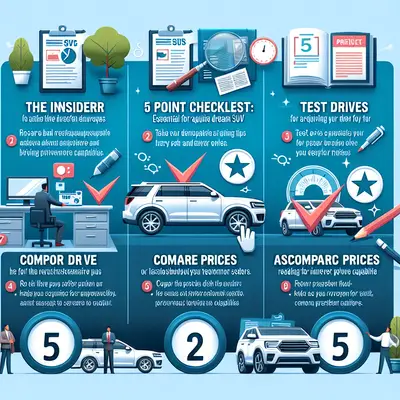Know Your SUV Categories
Contrary to the common misconception, not all SUVs are created equal. They can be broadly categorized into compact, midsize, and full-size SUVs, each with its distinct characteristics. Compact SUVs are ideal for city driving and fuel efficiency, while midsize SUVs offer a balance between performance and practicality. In contrast, full-size SUVs are perfect for those with large families or towing needs. Understanding these categories is key to narrowing down your choices.
Prioritize Your Needs
Identifying your primary needs can significantly streamline your decision-making process. Are you looking for a vehicle capable of off-road adventures or a family-friendly option with ample cargo space? Perhaps you need an SUV with advanced safety features or one that boasts superior fuel efficiency. By prioritizing your requirements, you can effectively filter out models that don't match your needs.
Consider the Powertrain
The powertrain of an SUV, which includes the engine, transmission, and drivetrain, directly impacts its performance, fuel efficiency, and driving experience. For example, a V6 engine may offer more power, but a four-cylinder engine might be more fuel-efficient. Similarly, all-wheel-drive SUVs provide better traction but may consume more fuel than their front-wheel-drive counterparts. It's essential to consider these factors before making your purchase.
Evaluate Safety Features
Safety should never be compromised when it comes to buying an SUV. Look for advanced safety features such as anti-lock braking systems (ABS), electronic stability control (ESC), and comprehensive airbag systems. Additionally, modern SUVs often come with advanced driver-assistance systems (ADAS) like adaptive cruise control, lane-keeping assist, and automatic emergency braking. Make sure to consider these features during your decision-making process.
Don't Forget the Resale Value
While it's easy to get caught up in the excitement of buying a new SUV, it's also important to think long-term. Certain brands and models typically have better resale value based on their reliability and durability. Researching and considering this aspect can save you from potential financial pitfalls when you decide to sell or trade-in your SUV in the future.
Conclusion
Finding the perfect SUV is not just about style and comfort—it's a careful balance of understanding your needs, assessing the vehicle's performance, ensuring safety, and considering the financial implications. By following these expert tips, you're well on your way to making an informed decision and driving home the SUV that's perfect for you.



